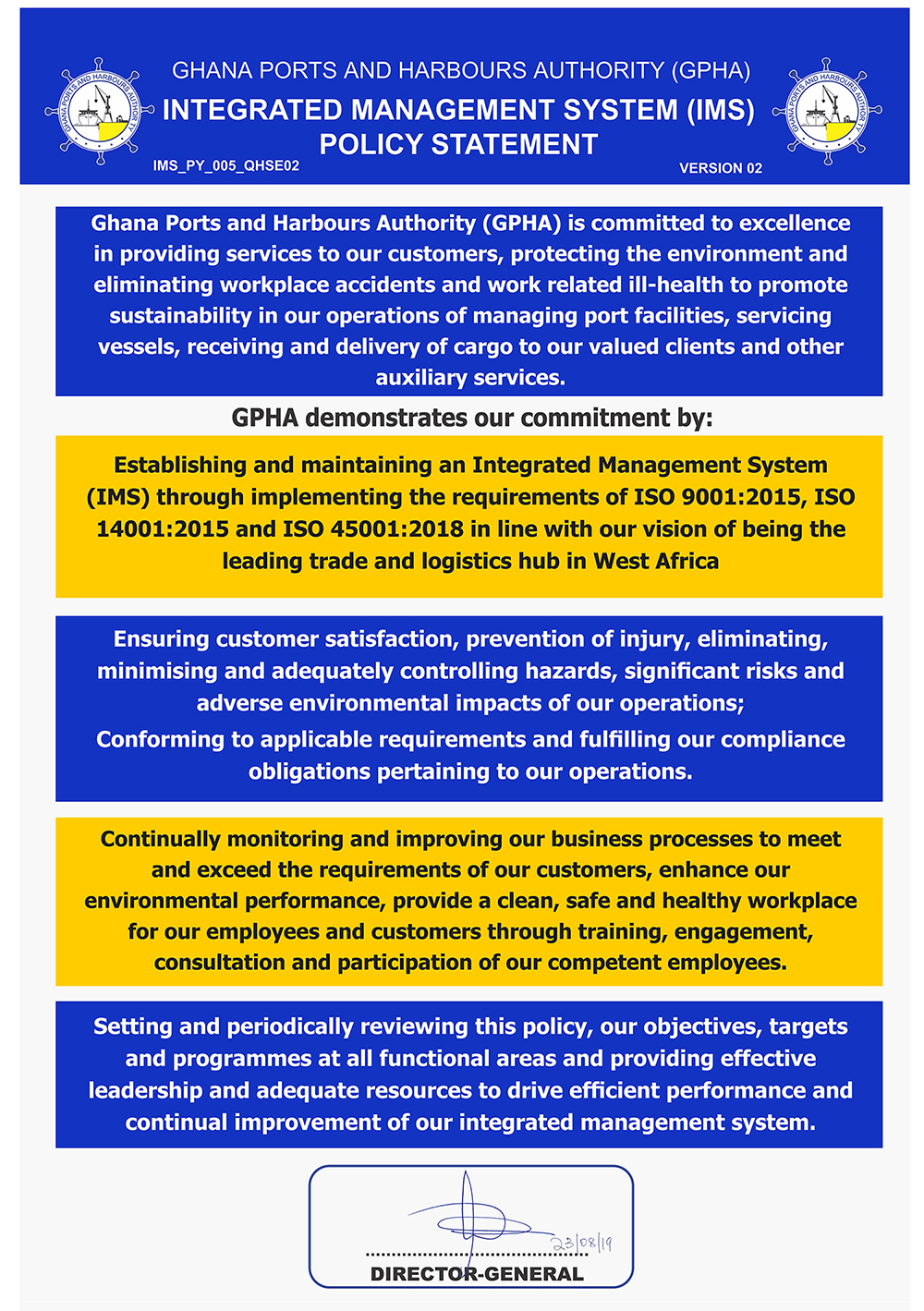

The General Manager, Estate and Environment at the Ghana Ports and Harbours Authority, James Benjamin Gaisie has intimated the readiness of state agencies in streamlining their activities towards efficient provision of waste reception services at the ports of Ghana.
Speaking on Eye on Port, Mr. Gaisie revealed that several consultations have been held to get state agencies playing their respective roles at the ports to appreciate the importance of quick turnaround of vessels to the maritime trade and this has yielded positive results so far.
The General Manager in Charge of Estate and Environment at GPHA said these actions were necessitated by the realization that certain statutory activities by these agencies inadvertently end up causing delays to waste reception services at the ports.
Mr. Gaisie explained that “some of our service providers also engage in other activities apart from the waste reception. They may be licensed to take waste, but they could be licensed by another entity to engage in some other activity. For example, handle petroleum products. Because petroleum products are commercial in nature, it has duty implications. Because of this, Customs wants to scrutinize their activities for good reason. So even if they have taken waste, Customs is interested. And they put in measures to ensure that they are well scrutinized, so they do not potentially evade tax. That started to create problems.”
He said this relatively newer practice, eventually affected vessels’ waiting time, as waste management service providers had to go through the necessary customs procedures before getting clearance to work.
He said it is the Port Authority’s objective to ensure that none of such auxiliary operations like waste reception causes undue delays to cargo vessels. In that same light, the Operations Manager of one of the waste management service providers at the Port of Tema, Ecostar, Samuel Addy cited the implications of delay on the shipping business.
Mr. Samuel Addy said “people are only aware of demurrage when it comes to containers but there is also demurrage on vessels. If the authorities appreciate that anytime a vessel on time charter comes to ports, it has to be served and go as soon as possible.”
He lamented the approval process that take place before they can conduct their waste reception activities.
“After we have boarded the vessel to ascertain the level of waste we are going to work with, you have to approach the authorities with letters asking for permission to be able to work on the vessel. The permits will come from GPHA, Customs and National Security. It is only after that we can mobilize logistics to work with,” Mr. Addy disclosed.
He stated that it has been difficult for officials of state authorities to appreciate the urgency on the ground, and this has often culminated in long waiting time to acquire these approvals.
Mr. Addy however expressed relief to hear that the state agencies are collaborating to ease up the process in order to promote efficient delivery of the waste reception services at the port.
The MARPOL 73/78 Convention of the International Maritime Organisation requires State Parties to ensure the provision of adequate reception facilities in ports to handle operational and domestic waste discharge from vessels in an environmentally friendly manner.
It is in abiding by this international best practice that GPHA has partnered licensed waste management companies to provide this service.